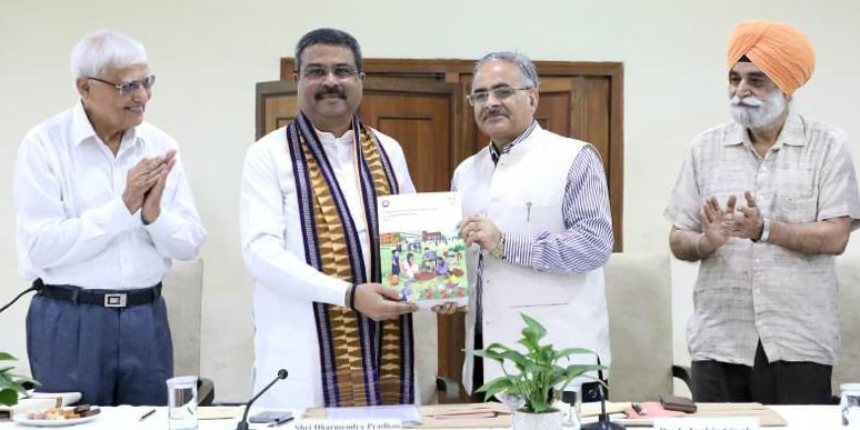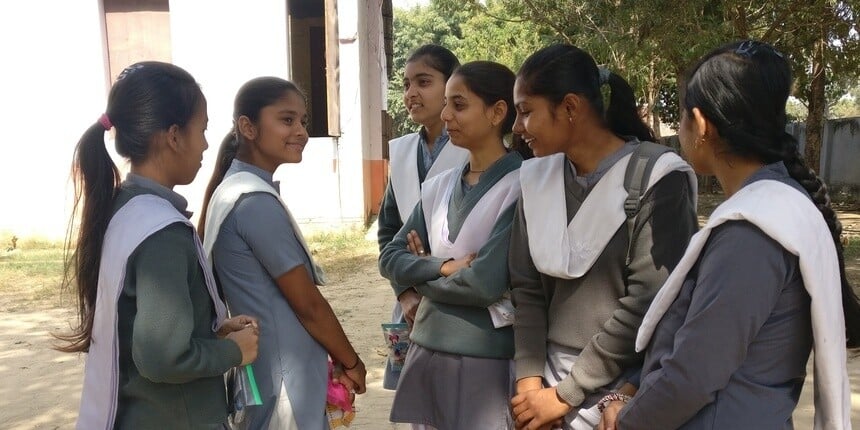NCF 2023: ‘All school boards should conduct modular board exams in 10 years’
Atul Krishna | August 23, 2023 | 06:24 PM IST | 4 mins read
The National Curriculum Framework (NCF 2023) requires board exams twice a year and at least two languages to be taught till Class 12.

NEW DELHI: The National Curriculum Framework for School Education (NCF) 2023, released by the education ministry on Wednesday, has mandated all schools boards to provide modular exams in 10 years. The NCF 2023 also proposes that Class 12 board exams should be held twice every year across all boards and that all Class 12 students should learn at least two languages, including one Indian language, compulsorily.
Modular exams, as defined by the National Education Policy (NEP) 2020, allows Class 12 students to take exams soon after the subject is taught in class. NCF 2023 also directs all boards to change to semester or term-based systems to reduce the content load for examinations.
According to the document, this will “eliminate the need for studying large amounts of material at once” thereby “reducing the need for coaching”.
As in the draft version of the document released in April, NCF 2023 also directs boards to conduct board exams twice a year.
Class 12 Syllabus: 4 groups of subjects
The NCF also proposes changes in pedagogy and curriculum structures. Instead of dividing students into science, commerce and humanities streams, students in Class 12 will be given the option to select choice-based courses out of four groups.
Class 12 students need to study two languages from Group 1, including a language native to India, mandatorily. Then, students need to choose four subjects (with an optional fifth subject) from at least two of the groups from Group 2 to Group 4. Subjects in Group 2– arts education, physical education and vocational education– will have local assessments instead of central assessments.
Students will have the following groups available to them.
NCF 2023 For School Education: 4 Groups In Class 12
Group Name | Components |
Group 1|Language |
|
Group 2| Art education |
|
Group 2|Physical education and wellbeing |
|
Group 2| Vocational education |
|
Group 3| Social science |
|
Group 3| Interdisciplinary areas |
|
Group 4| Mathematics and computational thinking |
|
Group 4| Science |
|
“This scheme allows for both breadth of study as well as gaining disciplinary depth. To allow for interesting combinations, there should be no further restrictions for students to choose specific streams,” the NCF document says.
Also Read| NCF 2023 ‘detached from reality’; Indian schools 9.8 lakh teachers short, lack infrastructure
The NCF says that schools should be prepared to offer subjects from at least two Groups amongst Groups 2, 3, and 4 immediately. Schools should also be ready to offer subjects from all four Groups within 5 years. They should offer additional subjects covering all curricular areas within 10 years.
 NCF 2023 mandates that all school board should hold board exams twice a year (Image: Careers360)
NCF 2023 mandates that all school board should hold board exams twice a year (Image: Careers360)
The new NCF says that unlike in Classes 9 and 10, where textbooks play a significant role in organising content, in Classes 11 and 12, students should be encouraged to source content from multiple channels. It suggests using “course compendiums” to make the choice of content more dynamic and flexible. It also said that pedagogy at this stage should expect more independent learning from the students.
Board exam twice a year, modular exams
NCF 2023 requires all board examinations to move towards becoming “easier” without any compromise on assessing genuine learning.
In 10 years, examination boards should be prepared to offer certification through modular examinations “that each test far less material and are taken immediately after the course is taken in school”, the NCF proposes.
“Board examinations should be offered at least twice a year to ensure that students have enough time and opportunity to perform well. Students can then appear for a Board examination in subjects they have completed and feel ready for. This process could be made possible through the creation of a comprehensive test item bank which can be used to create tests using suitable software,” the NCF stated.
It also requires all board exam evaluators to go through formal university-certified courses before being eligible for evaluations. It said that the evaluators should be given regular capacity building training for high quality testing.
“Selection of test developers, reviewers, translators, and evaluators for Board Examinations should be based on a rigorous process based on detailed guidelines. Boards of Examination should ensure that all test developers, reviewers and evaluators go through formal University-certified courses on test development before they begin this work. In addition, there should be ongoing capacity building of test developers, evaluators, and reviewers to support them in the design of high-quality test instruments,” the NCF said.
The NCF is set to be implemented from 2024 .
Follow us for the latest education news on colleges and universities, admission, courses, exams, research, education policies, study abroad and more..
To get in touch, write to us at news@careers360.com.
Next Story
]‘Will benefit rich students’: NCF 2023 must address India’s unequal schooling, says RTE Forum
Draft NCF 2023 Analysis: RTE Forum pushes for a greater role for states, says the current structure lacks the resources for equitable application of NCF and will likely benefit “rich students in elite schools”.
Atul Krishna